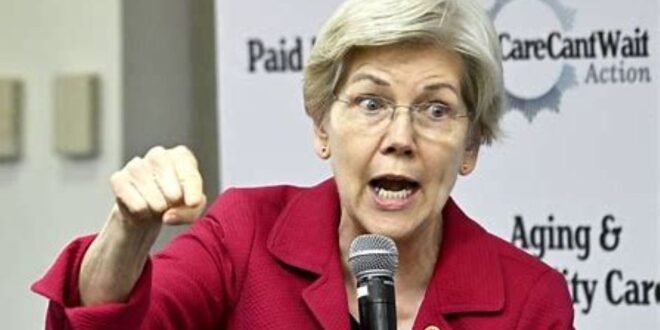Senator Elizabeth Warren is once again turning up the pressure on the cryptocurrency industry, unveiling a renewed legislative push aimed at tightening regulations around digital assets. This latest offensive underscores her commitment to framing crypto as a financial risk and a potential haven for illicit activity, doubling down on a narrative that has divided lawmakers and stakeholders across the financial and tech sectors.
Warren, a longtime skeptic of crypto, reintroduced her “Digital Asset Anti-Money Laundering Act” this week with a coalition of co-sponsors that includes several Senate Democrats. The bill seeks to extend know-your-customer (KYC) and anti-money laundering (AML) rules to a broader swath of the crypto ecosystem—targeting wallet providers, miners, validators, and other infrastructure participants who have, until now, operated in a regulatory gray area.
Critics within the crypto community argue the legislation is both overly broad and technologically impractical, raising concerns that it could stifle innovation and push development offshore. Warren, however, insists that stronger oversight is necessary to prevent digital currencies from being exploited by bad actors, including drug traffickers, terrorists, and rogue states.
“Crypto has become the payment method of choice for ransomware gangs, drug dealers, and rogue nations,” Warren said during a Senate Banking Committee hearing. “We need commonsense rules to close the loopholes and protect national security.”
Industry advocates, meanwhile, contend that the narrative surrounding crypto’s use in crime is overblown and that existing tools can effectively track illicit transactions on public blockchains. They warn that excessive regulation may discourage legitimate use cases and delay the U.S.’s ability to lead in blockchain innovation.
The bill’s prospects remain uncertain, particularly in a divided Congress. While some lawmakers have warmed to the idea of more crypto regulation in the wake of high-profile collapses like FTX, others have voiced support for more tailored, innovation-friendly frameworks.
As the 2024 election cycle approaches, crypto is increasingly becoming a political flashpoint. Warren’s aggressive stance may resonate with voters wary of unregulated markets—but it also places her at odds with a growing contingent of bipartisan lawmakers and tech-forward constituents eager to see the U.S. embrace, rather than fear, the digital asset revolution.
Whether Warren’s renewed push gains traction or not, one thing is clear: the battle over the future of crypto regulation in Washington is far from over.
 Business Sandesh Indian Newspaper | Articles | Opinion Pieces | Research Studies | Findings & News | Sandesh News
Business Sandesh Indian Newspaper | Articles | Opinion Pieces | Research Studies | Findings & News | Sandesh News



